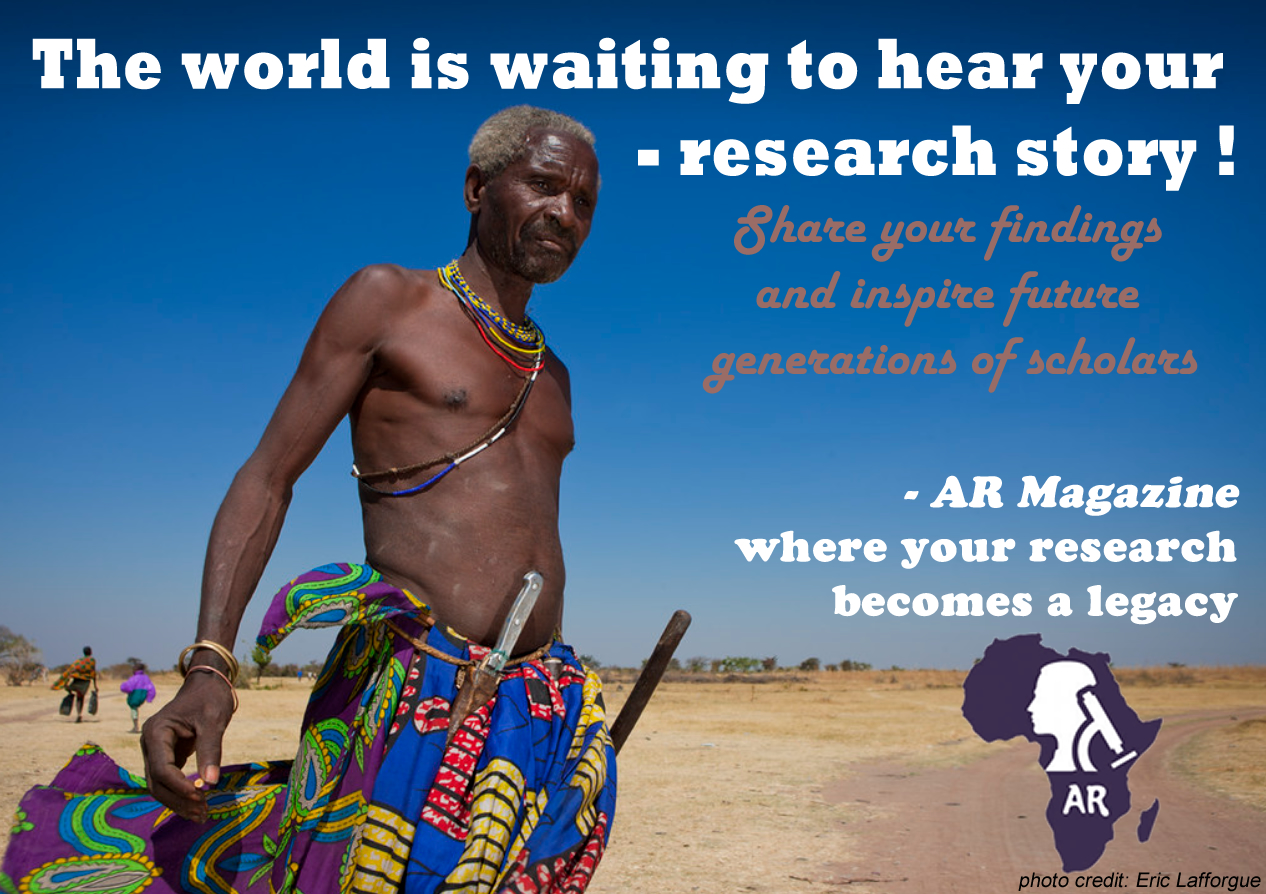Illustrative Image: Technological Transformation in African Real Estate: How AI & Blockchain Revolutionize Housing Finance, Infrastructure & Project Management in Nigeria, Egypt & South Africa
Image Source & Credit: techinafrica
Ownership and Usage Policy
A recent study by Owotemu, A. E., & Ibaru, A. (2025) titled “Technological Transformation in Infrastructure & Real Estate: Artificial Intelligence (AI), Blockchain (DLT), Project Management & Policy Implications across Leading Markets in Africa (Egypt, South-Africa & Nigeria)” published in American Journal of Industrial and Business Management, reveals that Artificial Intelligence (AI) and Blockchain (DLT) are pivotal in transforming real estate, infrastructure, project management, and housing finance across Nigeria, Egypt, and South Africa.
This study explores how Artificial Intelligence (AI) and Blockchain (Distributed Ledger Technology – DLT) are transforming real estate, infrastructure, project management, and housing finance in three leading African markets: Nigeria, Egypt, and South Africa. By leveraging AI applications such as predictive analytics for market trends, generative AI for content automation, and computer vision for property valuation, the industry is experiencing enhanced operational efficiency and data-driven decision-making. Concurrently, blockchain platforms like HouseAfrica and Empowa are streamlining property transactions and promoting affordable housing solutions, making real estate more accessible and transparent.
“
AI and Blockchain technologies significantly enhance efficiency, transparency, affordability, and sustainability in African real estate, infrastructure, and housing finance.
– Owotemu, A. E., & Ibaru, A. 2025
In project management, AI-powered tools are improving risk mitigation, resource allocation, and overall efficiency, contributing to smoother infrastructure development. The study also addresses critical policy and ethical considerations, including data bias, potential job displacement, and the importance of responsible technology adoption. Furthermore, AI is playing a significant role in advancing sustainability through green building certifications and innovative urban planning. Overall, the integration of AI and blockchain technologies is revolutionizing the African real estate and housing finance sectors, fostering affordability, accessibility, and sustainability while driving economic growth and infrastructure development across these key markets.
How the Study was Conducted
This study employed a mixed-methods approach, integrating qualitative and quantitative techniques to analyze the adoption of AI and blockchain technologies within real estate, infrastructure, project management, and housing finance sectors across Nigeria, Egypt, and South Africa. The methodology included a comprehensive literature review synthesizing academic research, policy documents, and industry reports on AI and blockchain applications. Quantitative analysis was conducted using multiple regression models to evaluate the relationships between AI adoption and outcomes such as housing affordability, finance accessibility, and project management efficiency.
Survey data were collected from real estate professionals, housing finance experts, and project managers to capture current trends in AI adoption, while case studies of platforms like HouseAfrica and Empowa illustrated practical technology-driven solutions in housing finance. Additionally, macroeconomic factors—such as GDP growth rates, exchange rates, and government policies—were assessed to understand their influence on AI integration.
Focusing on three leading AI adopters in Africa—Nigeria, Egypt, and South Africa—the study drew from over 100 journal articles, 50 industry reports, and government policy documents spanning 2014 to 2023. Data reliability was ensured through cross-validation across multiple sources. Key analytical techniques included regression analysis to quantify AI’s impact on housing finance and project management efficiency, thematic content analysis to identify trends and ethical considerations, and economic modeling employing predictive analytics to forecast future AI adoption rates.
What the Authors Found
The study by Owotemu and Ibaru reveals that Artificial Intelligence (AI) and Blockchain (DLT) are pivotal in transforming real estate, infrastructure, project management, and housing finance across Nigeria, Egypt, and South Africa. AI enhances efficiency and decision-making through predictive analytics and computer vision, improving property valuation, credit scoring, and loan servicing to make transactions faster and more reliable. Blockchain technology, utilized by platforms like House Africa and Empower, boosts transparency by streamlining property transactions and reducing fraud, thereby increasing security and trust in real estate markets. These technologies also foster innovative financing models—such as digital lending and fractional ownership—that improve housing affordability and accessibility. However, AI adoption faces challenges, including ethical concerns over data bias, risks of job displacement, and regulatory complexities. Additionally, AI supports sustainability and smart urban planning by facilitating green building certifications, urban development, and climate-smart housing loans, promoting environmentally friendly infrastructure. Overall, AI integration in housing finance holds significant economic growth potential, with the ability to unlock billions in value by attracting investment and enhancing market efficiency across Africa.
Why is this important
Economic Growth & Investment: AI-driven property valuation and blockchain-backed transactions increase market trust, attracting both local and international investments.
Housing Affordability: Digital lending and predictive analytics reduce financial barriers for homeowners and developers.
Project Management Advancements: AI improves resource allocation, risk management, and operational efficiency in large-scale infrastructure projects.
Ethical & Policy Considerations: The study raises awareness of data bias and job displacement risks, advocating for responsible AI adoption.
Sustainability Impact: AI-powered urban planning and green building certifications contribute to eco-friendly infrastructure.
What the Authors Recommended
- Governments should establish clear AI and blockchain regulations to ensure transparency, security, and ethical use in real estate transactions, and AI systems must be designed to reduce algorithmic bias and protect user data, ensuring fair and inclusive housing finance.
- Policymakers should develop workforce training programs to help professionals adapt to AI-driven changes in real estate and project management.
- Stakeholders should increase funding for AI-driven property valuation, credit scoring, and urban planning tools, and collaboration between governments, tech firms, and real estate developers can accelerate AI adoption and blockchain integration.
- AI should be leveraged for green building certifications, climate-smart housing loans, and urban development innovations. AI-powered digital lending platforms and blockchain-based fractional ownership models can increase housing accessibility.
- AI-driven alternative credit scoring can help underbanked populations access housing finance. Governments and industry leaders should develop a phased AI adoption strategy, ensuring gradual integration without disrupting existing systems.
In conclusion, the integration of Artificial Intelligence and Blockchain technologies is fundamentally reshaping the real estate, infrastructure, and housing finance sectors across Nigeria, Egypt, and South Africa. These innovations are driving greater efficiency, transparency, and accessibility while also supporting sustainable development and economic growth. However, to fully realize these benefits, it is crucial for governments, policymakers, and industry stakeholders to address ethical concerns, implement robust regulations, and invest in workforce training. By fostering responsible and inclusive AI adoption, Africa’s leading markets can unlock significant opportunities, ensuring a more affordable, transparent, and resilient future for housing and infrastructure development.
Cite this article as (APA format):
AR Managing Editor (2025). Technological Transformation in African Real Estate: How AI & Blockchain Revolutionize Housing Finance, Infrastructure & Project Management in Nigeria, Egypt & South Africa. Retrieved from https://www.africanresearchers.org/technological-transformation-in-african-real-estate-how-ai-blockchain-revolutionize-housing-finance-infrastructure-project-management-in-nigeria-egypt-south-africa/






 The African Research (AR) Index is a comprehensive scholarly directory and database focused explicitly on journal publishers that publish and disseminate African research.
The African Research (AR) Index is a comprehensive scholarly directory and database focused explicitly on journal publishers that publish and disseminate African research.

